The African Darter show.
Also known as the Snake bird locally, and I will explain the strange name in this post.
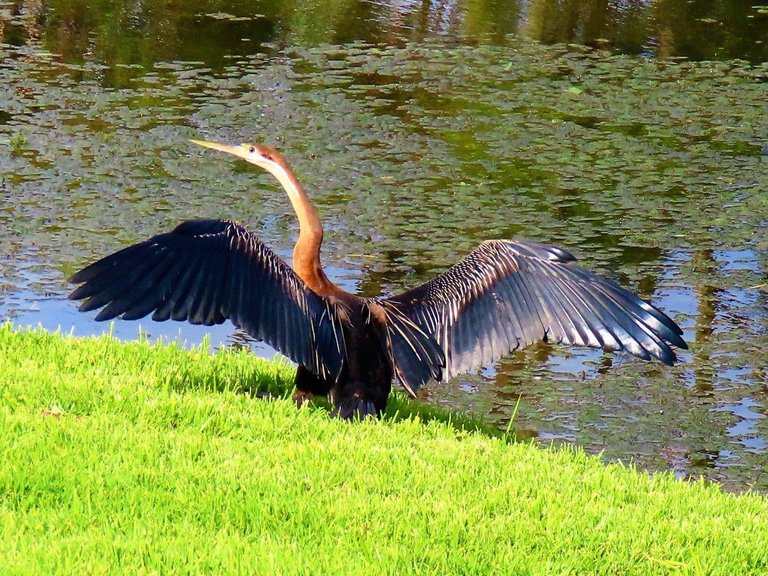
These guys are not easy to get close up, but I crept up behind a good hiding spot.
One of the few sunny days that we had this winter and we slipped out during a power cut to get a taste of nature. We have many areas here that are ideal for photography and with the sea nearby, it often makes for a mixture of seabirds and land birds mingling at the same fresh water dams. Sort of reminds me of a place where we lived as kids, as it was populated by a mix of nations. Being one of the cheaper city suburbs, it drew people from many countries and we were one big and happy cosmopolitan family, as everyone knew everybody.
I think that you will agree that this below was a good hiding spot. But sadly it was not good enough for the senses of the darter.
Maybe a glint from the sun alerted him to my presence and he gave me a right and a left glance below.
First the right hand look.
Then the left hand look and I knew that the game was up.
I was right as he decided to take his leave, and he was out of here.
I followed him with my zoom, and he landed on the opposite bank of the dam.
At the left was a Cape Cormorant and on the right was the darter.
Here is the explanation why the locals call the darter a snake bird.
If you look at the picture below, you will see that when a darter swims, it submerges its body in the water with only its head and long neck visible above the water. It looks like a snake swimming around.
Here's a bit of history; In earlier years it was known as a "devil bird".
The genus Anhinga was introduced by the French zoologist Mathurin Jacques Brisson in 1760, with the anhinga or American darter (Anhinga anhinga) as the type species. Anhinga is derived from the Tupi ajíŋa (also transcribed áyinga or ayingá), which in local mythology refers to a malevolent demonic forest spirit; it is often translated as "devil bird". The name changed to anhingá or anhangá as it was transferred to the Tupi–Portuguese Língua Geral. However, in its first documented use as an English term in 1818, it referred to an Old World darter. Ever since, it has also been used for the modern genus Anhinga as a whole.
So, there you have it, an innocent bird that was created with the correct tools to catch its prey effectively (spearing fish with its sharp beak), gets the monikers of devil bird and snake bird added to its reputation.
Superstition has cost many birds their lives over time, as even owls were killed on sight not so long ago due to the belief that they are bad omens.
Can we then blame the birds when they flee from the presence of mankind?
That was never how it was designed to be, but sadly mankind destroys so much with its false theories and beliefs.
I find myself also fleeing from mankind at times.
And That's All Friends.
Photos by Zac Smith-All Rights Reserved.
Camera: Canon Powershot SWX70HS Bridge camera.
Thank you kindly for supporting a post on behalf of @papilloncharity
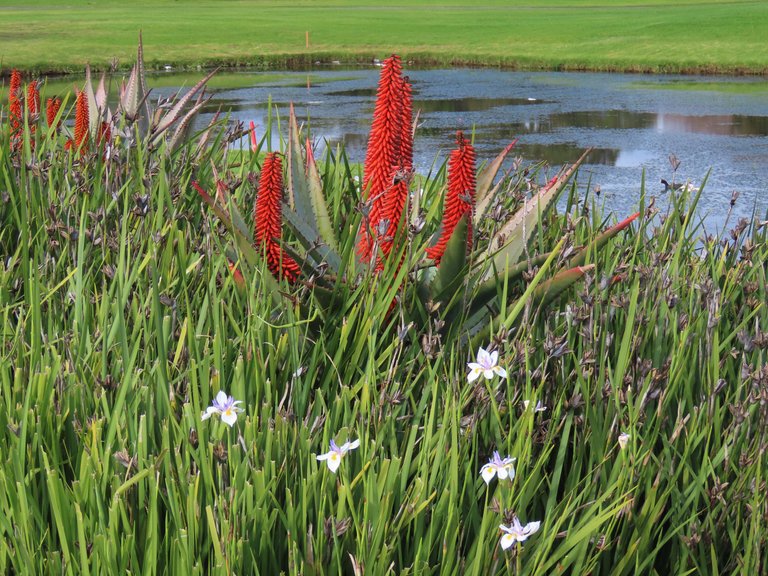
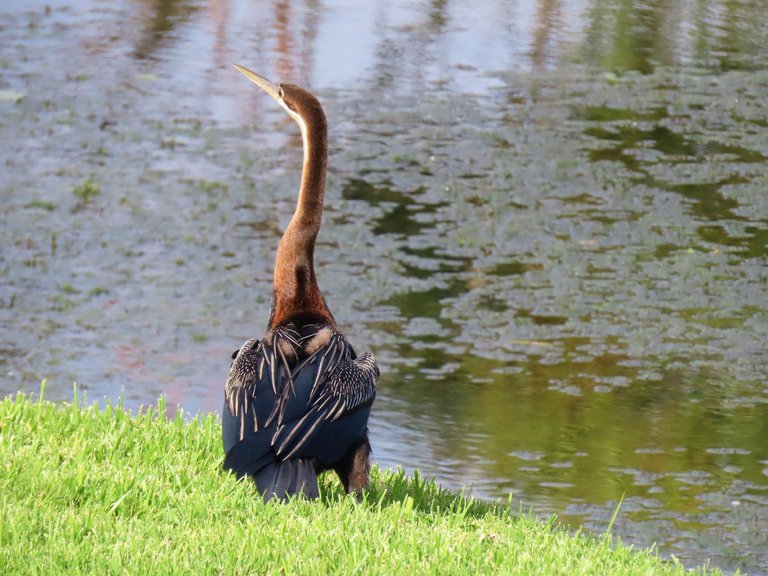
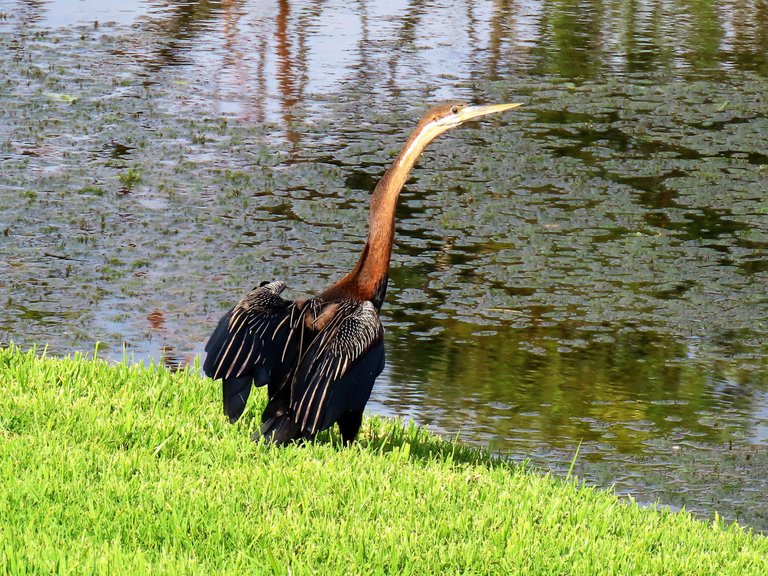
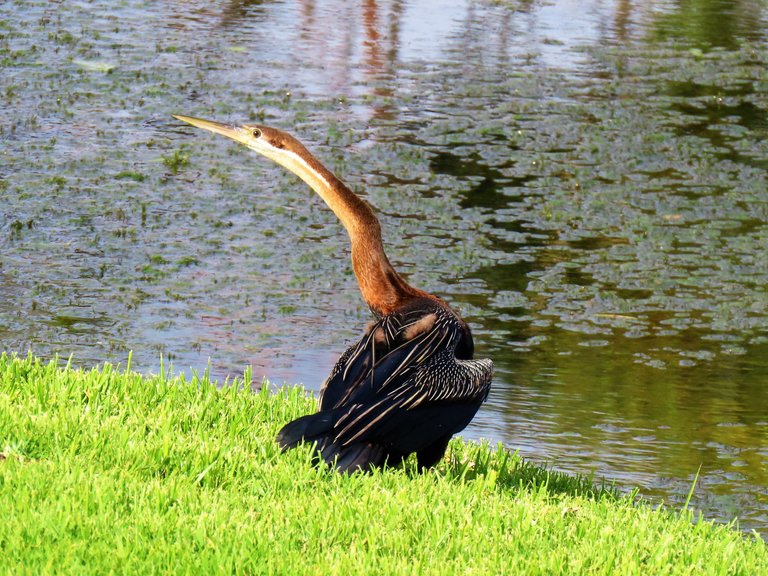
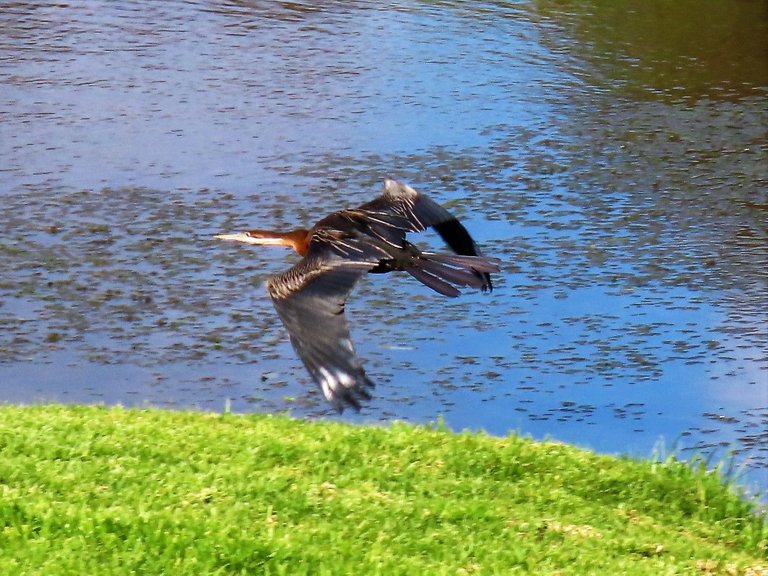
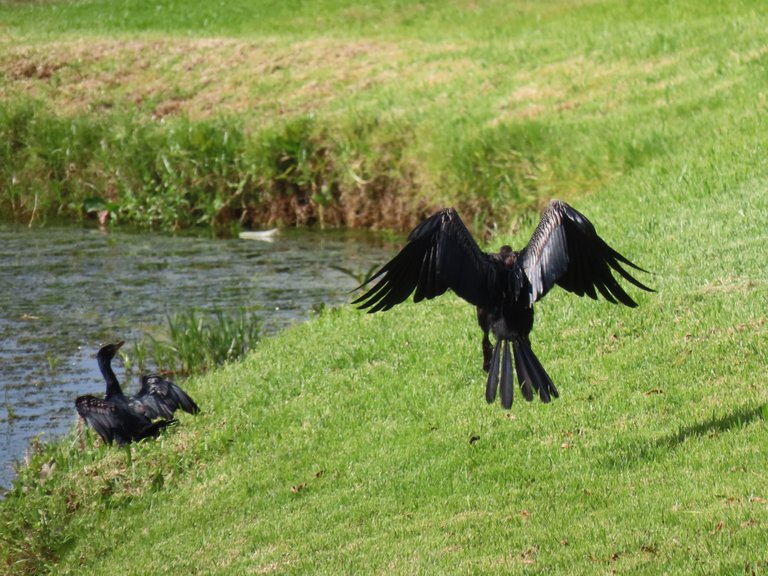
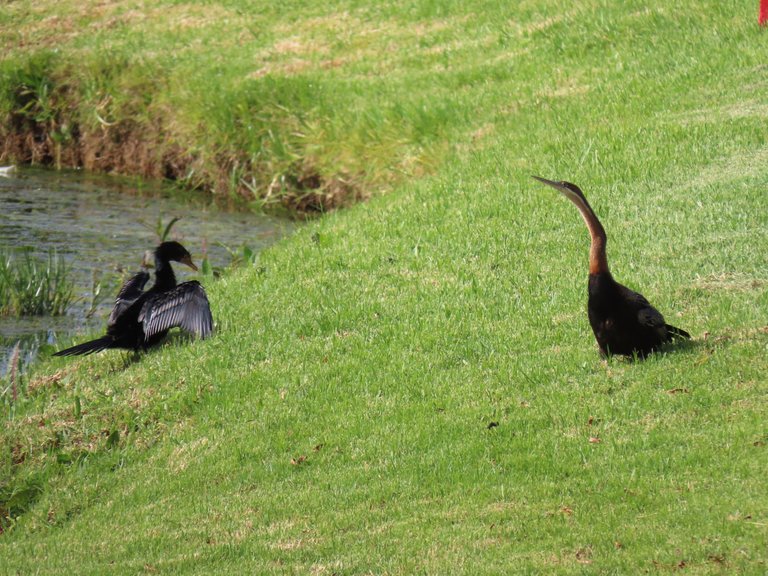
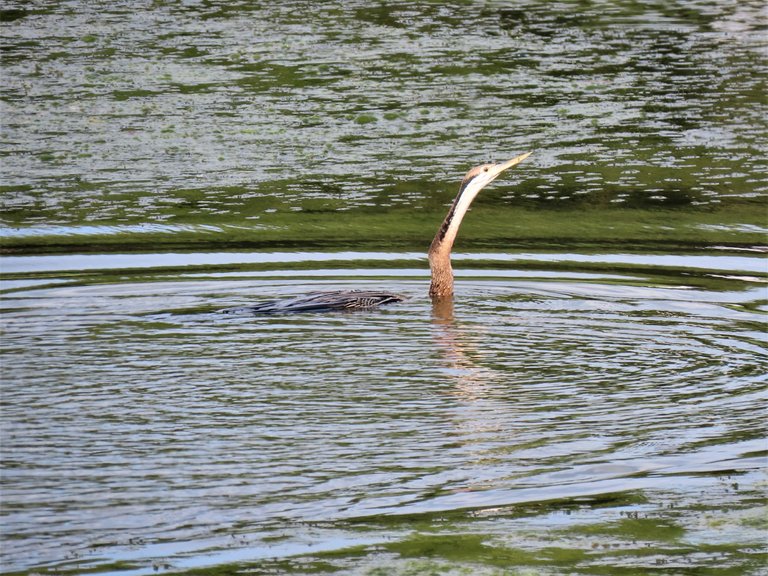
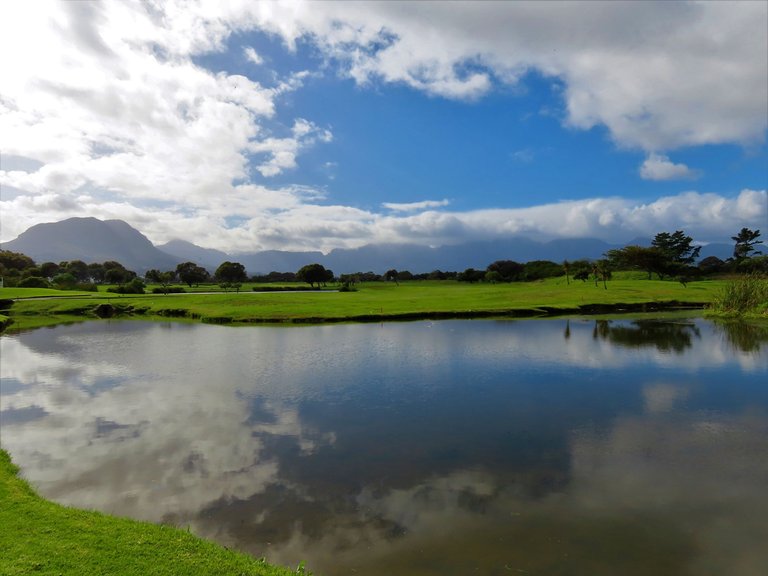
Glad the name changed lol. That said, not sure the meaning of the new one - though darter sounds awesone! Thanks once again for sharing such beautiful photos.
Yes, darter is a great description as it darts the fish with its beak.
Thank you and my pleasure always to share.
Indeed it looks like a snake.when swimming and it's head on top of the water.
Wow! A nice shot of the snake bird.
Thank you and yes, that's where the name of snakebird comes from.
Glad that you liked it.
!LUV
@jenthoughts, @papilloncharity(2/10) sent LUV. | connect | community | HiveWiki | NFT | <>< daily
! help(no space) to get help on Hive. InfoOh thanks for the explanation
I have always heard about snake bird but never seen it before. Is it as dangerous as a snake?
My pleasure and they are not dangerous. They are rather clever, as they flee from mankind.
!LUV
@rafzat, @papilloncharity(3/10) sent LUV. | connect | community | HiveWiki | NFT | <>< daily
! help(no space) to get help on Hive. InfoNice shot's, the bird looks like a relative of the Double-crested Cormorant. Thanks for sharing
Thank you. The White-breasted cormorant does not have a sharp beak. But the darter also belongs to the cormorant family.
!PIZZA
That's true.
Magnificent shots were very cool.
Thank you for the appreciation.
$PIZZA slices delivered:
papilloncharity tipped shoemanchu
qwerrie tipped papilloncharity
@papilloncharity(3/15) tipped @qwerrie
Intresting birdie. Look fatty - might be tasty in a dish?..
Just kidding! 😁 I prefer !PIZZA with cheese and olives, you know
Nope, nobody here will eat those fancy chickens mate.
So, I am glad that you prefer to stick with your cheese and olive !PIZZA